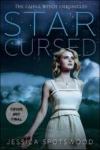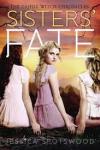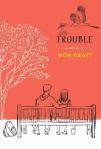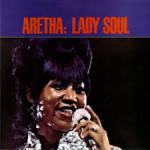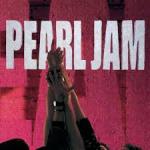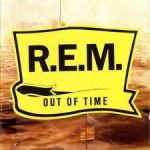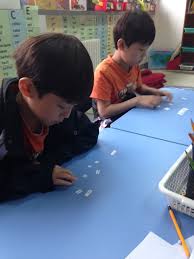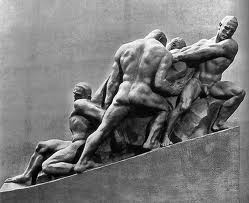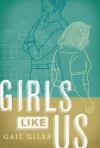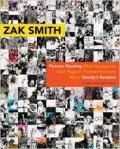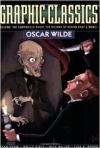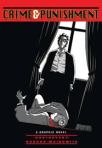Winter vacation is the perfect time to curl up with a good book. Here are some new arrivals in the Three Rivers Library Teen area.
Star Cursed by Jessica Spotswood (Book Two of the Cahill Witch Chronicles)
In Book One, Cate was just learning of her powers and the need for them in a world where the Brotherhood was persecuting witches. Now Cate will need to decide if she is willing to use her powers as a weapon, especially as such a choice might cause her to lose Finn forever and endanger everyone she loves.
Sister’s Fate by Jessica Spotswood (Book Three of the Cahill Witch Chronicles)
Ramping up to its conclusion, Cate struggles with betrayal, her fiance’s amnesia and the prophecy that predicts the murder of one of the Cahill sisters by another.
Blood Red Road by Moira Young (Book One in the Dust Lands Trilogy)
Lugh and Saba are twins and even life in the wastelands is tolerable as long as they have each other. But when Lugh is kidnapped, Saba sets out to find him, discovering others with whom her fate is intertwined and confronting a growing understanding that she is much more than she assumed.
Rebel Heart by Moira Young (Book Two in the Dust Lands Trilogy)
Success can come with a price and now there is one on Saba’s head. The people she has trusted to help her may be her betrayers, the powers of her adversaries far greater than she believed. Warrior strength aside, Saba will be lucky just to survive.
Raging Star by Moira Young (Book Three in the Dust Lands Trilogy)
The fight is on but who to fight? The vision of her enemy sounds like paradise and Saba could be one of the chosen few. But Jack is on the other side, his loyalties strong and clear. And what, really, can a band of guerrillas do in the fight against a trained army?
A Girl on a Wire by Gwenda Bond
Jules and Remy (or, if you prefer, Romeo and Juliet) are from rival families, both seeking fame in the Cirque American as high wire walkers and trapeze artists. They join forces when bad magic threatens to bring them down – literally.
Famous Last Words by Katie Alender
Willa is having visions and someone is stalking and killing Los Angeles teenagers in Hollywood movie style. Could the two things be related? And, even if they are, who can Willa trust to help her?
Even in Paradise by Chelsey Philpot
Julia Buchanan is every girl’s dream best friend, possessing wealth, beauty, popularity and a gorgeous older brother. Charlotte can’t imagine being so lucky until she begins to see Julia for who she is, the victim of a secret family tragedy.
Belzhar by Meg Wolitzer
Belzhar is a magical place accessed through special red journals distributed to the five emotionally damaged members of a class focusing on the works of Sylvia Plath. Jam is among them and finds that she can return to a time before the love of her life died and also share her grief with the other students. Within Belzhar, though, is also a chance to make decisions about what she is willing to sacrifice to remain in the past.
Atlantia by Ally Condie
When Rio, who is the only other person to know of Bay’s siren voice, chooses Above and Bay is stuck Below, Bay’s whole life changes. Suddenly, she is questioning everything: her mother’s death, her relationships, and the system that made the divide between Above and Below in the first place.
The Accidental Highwayman by Ben Tripp
Magic and fantasy merge with 18th-century sword-fighting adventure in this tale of Kit who, by taking on his dying master’s cape, accidentally adopts his quest as well, causing him to cross paths with every manner of creatures from goblings to beautiful princesses.
Mortal Heart by Robin LaFevers (Book Three in His Fair Assassin Trilogy)
In Book One, Ismae introduced us to the convent of St. Mortain and the God of Death. In Book Two, Sybella, created by Death himself, struggles to find meaning to life beyond vengeance. Now, in Mortal Heart, Annith takes the intrigue beyond the convent walls and seeks the answers that may lead her and her country to safety.
Jumped In by Patrick Flores-Scott
Sam’s strategy for getting through school – and life – is invisibility. It seems to be working until a teacher pairs him with Luis for a slam poetry project. It’s time for Sam to show up – for Luis and for himself.
The Iron Trial by Holly Black and Cassandra Clare
Callum Hunt tries to flunk the Iron Trial exam for entry into the Magisterium because his father has warned him to avoid magic at all costs. It doesn’t work, though, and now Call will be the student of the greatest mages ever to live.
I’ll Give You the Sun by Jandy Nelson
Jude and Noah are twins, tied together forever and also torn apart by the very things that make them similar. Noah’s chapters are told from the perspective of the twin’s 13-year-old selves and Jude narrates the story from the age of sixteen. Something serious has happened in between…
Half Bad by Sally Green
Nathan’s father was a notorious dark witch and his mother a white witch – and dead. Nathan is kept in a cage, beaten, tortured and deemed too dangerous to mix with others due to his parentage. He must escape to come into his own power.
Tabula Rasa by Kristen Lippert-Martin
Sarah is having surgery at a hospital-turned-prison to erase her memory, purportedly for her own good, when the procedure is interrupted by mercenaries who are apparently there for her. She escapes with the help of a teen hacker with his own motives, but she not only has to stay alive, she has to find out why she is being pursued.
Snow Like Ashes by Sara Raasch
The Winterians were conquered sixteen years ago when Meira was just a baby. She has been among the few survivors to escape ever since and it will be up to them to recover their land and free the people. And it will take magic to make it happen.
The Year of the Rat by Clare Furniss
Pearl will never love the Rat. The baby is the reason her mother is dead and Pearl can’t even look at her without being reminded of her grief. But Mom keeps visiting and Pearl needs to hear what she has to say.
Trouble by Non Pratt
Hannah is pregnant and needs a friend badly. Aaron is the new kid and ends up pretending to be the father of Hannah’s baby. Told with Hannah and Aaron as alternating narrators, this is the story of the power of friendship.
Vango by Timothee de Fombelle
Written originally in French, the story of Vango leads across continents and among pirates, assassins, Nazis, the British elite and the European underworld between the two world wars. He planned to join the priesthood. Now he’s accused of a murder he didn’t commit. Time to run.

